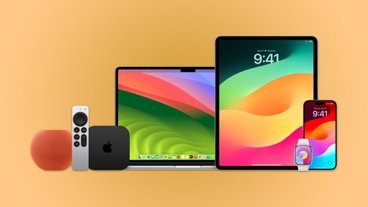iBooks Author works limited to commercial distribution on iPad through iBookstore
This has generated a minor controversy, with critics claiming that Apple's business model would be akin to Microsoft restricting what users can do with their Word documents. However, there has long been licensing restrictions that artificially limit how software can be used.
Microsoft, for example, licenses its Windows Server and Exchange software on a per-user and/or per machine basis, while a variety of end user content creation apps, including Adobe's, offer a free version limited to producing non-commercial work or low cost versions aimed solely for use in education.
iBooks off the iPad?
In Apple's case, the company is offering free development and deployment apps and the iBookstore service in hopes of generating content that adds value to its iPad hardware. Apple appears to have reason to be concerned that third parties might try to resell textbooks and other ebooks for use on other platforms or in stores that compete with iTunes.
While it would not appear to be difficult to reverse engineer an ebook reader capable of loading and displaying titles created with iBooks Author (given that the output is based on standards ranging from H.264 video to HTML, CSS and JavaScript code), without a paid business model it is hard to imagine how such a project would ever be completed.
So, while Apple doesn't appear to do anything to make content generated by iBooks Author incapable of working outside of iPad's new iBooks 2 app, there is a significant barrier of practicality given that Apple restricts firms using its free authoring tool from creating work they could sell through other markets or on other platforms.
Carrots rather than sticks
Under the clause "Distribution of your Work," the iBooks Author End User Licensing Agreement states: "As a condition of this License and provided you are in compliance with its terms, your Work may be distributed as follows:
(i) if your Work is provided for free (at no charge), you may distribute the Work by any available means;
(ii) if your Work is provided for a fee (including as part of any subscription-based product or service), you may only distribute the Work through Apple and such distribution is subject to the following limitations and conditions: (a) you will be required to enter into a separate written agreement with Apple (or an Apple affiliate or subsidiary) before any commercial distribution of your Work may take place; and (b) Apple may determine for any reason and in its sole discretion not to select your Work for distribution."
This effectively means that while anyone can use iBooks Author to create content that can subsequently be used any way they like, if the ebooks are sold, they must get Apple's permission to sell them outside of the iBookstore.
Ignoring Apple's license would likely result in rejection of the author's work in iBookstore, the biggest available market for the work. This would extinguish any potential for a publisher to "add" side sales of its iBooks Author-created ebooks to a third party such as Amazon (which restricts the formats it accepts for distribution and wouldn't accept Apple's files anyway) or a third party store selling ebooks to Android or Windows 8 tablets, for example.
However, Apple's EULA does not appear to block the free distribution of titles for any use, including the distribution of limited functionality PDF copies or the distribution of full ebooks (something that would require a specialized ebook reader capable of rendering them).
Additionally, content authored in iBooks Author could largely be reformatted into a basic EPUB format or other file type, such as Amazon's KF8, and redistributed without complaint from Apple. However, such works would also lack the multitouch features and dynamic widgets that iBooks Author makes it easy to incorporate into its own titles.
 Daniel Eran Dilger
Daniel Eran Dilger











 Wesley Hilliard
Wesley Hilliard
 Andrew Orr
Andrew Orr



 Amber Neely
Amber Neely

 William Gallagher
William Gallagher






